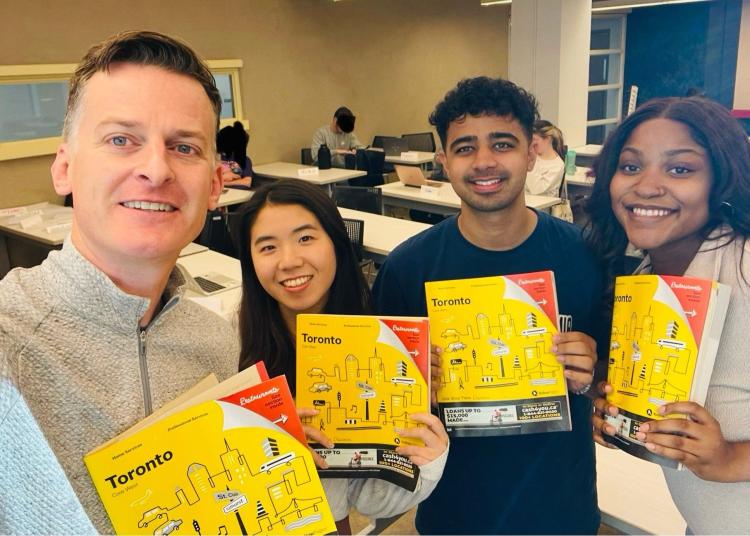
Danny Smith, a George Brown College School of Marketing professor, built a class lesson on the topic of phonebooks -- something we rarely see anymore.
Danny used both WhitePage (direct business information) and YellowPages (advertised businesses) for the lesson; only two out of 40 students had even seen one before.
Phonebooks are search engine marketing in their infancy - you search by the service.
It led to conversations about social and economic inclusion
It fuelled a really interesting conversation as to why today, in an urban, digitally connected city like Toronto, phone books would even still get published. The class talked about who would still use a phone book - who lives in the downtown core - there's affluent individuals and then there are people who aren't as financially privileged, or people who struggle with using or accessing technology.
Search engine optimization
When you look at the Yellow Pages, you see how companies "hack" the listings. Here's an example of a painting company. Rather than call themselves "Painter Co.", they actually call themselves "123 Painter Co." or "A1 Painter Co." - and it brings them to the top of that page. It's the same thing web developers do to bring a company or organization's page to the top of a search.
Web developers look at the page layout of the website. They look at the architecture in terms of headers and subheads and then keywords, and by constructing those to search engine optimization (SEO) best practices, your website will perform better on a browser page.
So essentially Google, Bing, Safari - they are doing the same thing as the Yellow Pages - to get the higher ranking.
Danny runs the class as a "flipped classroom" - they do lecture materials at home and then they come to school to do work on their assignments with him.











